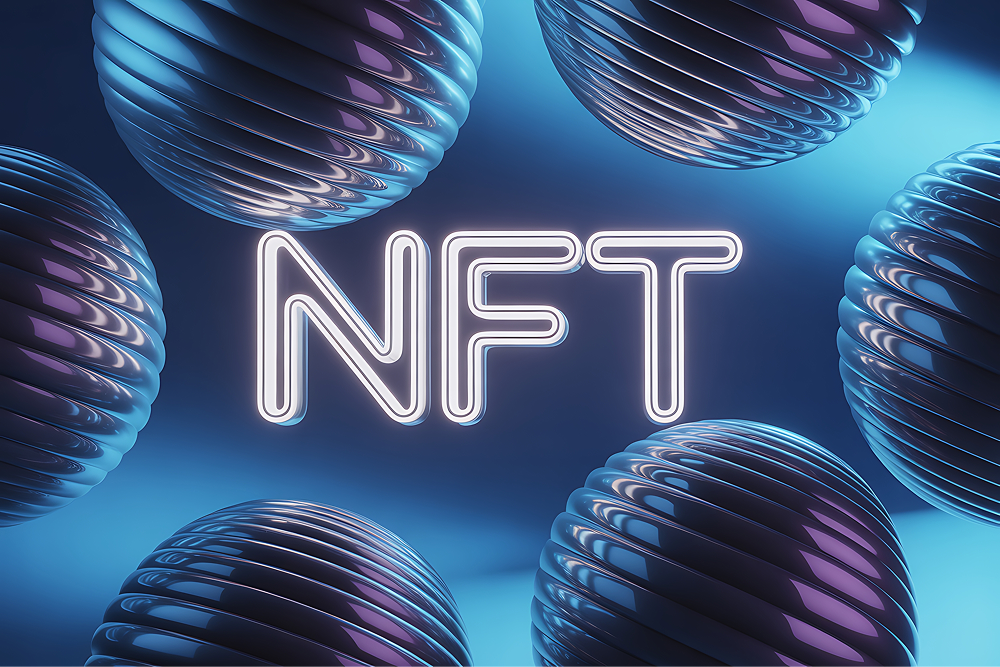So, what exactly is a smart contract? Think of it as a digital agreement that runs itself. The terms get written directly into code instead of on paper. Once it’s on a blockchain network, nobody can change or manipulate it.
Why does this matter for blockchain technology? Because these contracts don’t need banks, lawyers, or other middlemen to work. They just execute automatically when conditions are met. This changes everything for businesses and legal professionals working with decentralized systems.
Smart contract technology powers most of today’s crypto innovations. DeFi platforms use them for lending and trading. NFT marketplaces rely on them for ownership transfers. Even traditional companies are starting to adopt this approach for supply chain management and insurance claims.
However, security remains crucial. That’s where smart contract audits come in – experts review the code before deployment to catch bugs and vulnerabilities. Since blockchain contracts can’t be easily changed once live, getting the audit right matters enormously for protecting user funds and maintaining system integrity.
What Is a Smart Contract?
A smart contract is a transaction protocol or a self-executing digital agreement that uses blockchain technology. No lawyers, no banks, no middlemen needed. When certain conditions are met, the contract automatically does what it’s supposed to do.
Here’s how it works: developers write the rules in code, then deploy it to the blockchain. After that, the contract runs on its own. Every transaction gets recorded permanently, so you can always trace what happened.
A smart contract in blockchain is the engine that powers most crypto applications today. These programs handle everything from simple token transfers to complex lending protocols. They manage NFT sales, process governance votes, and even run entire decentralized exchanges.
The key difference from regular contracts? Code is the law here. Traditional contracts need courts to enforce them. Smart contracts enforce themselves through programming. Once something executes, there’s no taking it back.

Why Are Smart Contracts Important?
Smart contracts changed how we make agreements online. Before them, you needed banks, lawyers, or other middlemen to guarantee deals would work. Now the code itself guarantees everything.
Here’s why that matters: once a smart contract goes live on the blockchain, nobody can change it. Not hackers, not governments, not even the people who created it. The contract will do exactly what it was programmed to do, every single time.
Trust without knowing each other. That’s the real breakthrough here. Two strangers can make a deal without worrying about getting scammed. The blockchain handles everything automatically. Payment goes through when conditions are met. No questions asked.
What is a smart contract in cryptocurrency doing for regular people? It’s opening up financial services that were previously locked behind bank doors. Anyone with internet access can now lend money, trade assets, or earn interest on their savings. No credit checks, no paperwork, no approval processes.
The cost savings are huge too. Traditional contracts involve lawyers, notaries, and administrative fees. Smart contracts cut out all those expenses. A complex financial transaction that used to cost hundreds of dollars in fees might now cost just a few cents.
History of Smart Contracts
Smart contracts didn’t start with blockchain. The idea came from Nick Szabo back in 1994. He was an American cryptographer who saw something others missed: computers could enforce agreements automatically.
Szabo’s vision was simple but revolutionary. He wanted “computerized transaction protocols that execute the terms of a contract.” No lawyers needed. No banks required. Just code doing what it was programmed to do.
What made his idea so ahead of its time? Szabo understood that complex financial deals – things like derivatives and bonds – could become programmable. Instead of paying huge fees to middlemen, people could automate everything. The savings would be massive.
But there was one problem. The technology didn’t exist yet.
For over a decade, Szabo’s ideas stayed theoretical. Then Bitcoin launched in 2009, proving that decentralized digital systems could actually work. Still, Bitcoin’s scripting was limited. You couldn’t build complex applications on it.
Everything changed in 2015 when Ethereum arrived. This blockchain platform supported fully programmable smart contracts using a “Turing-complete” language. Suddenly, developers could build anything they could imagine.
What is a smart contract in blockchain today? It’s Szabo’s original vision finally realized. His 1994 predictions about automated financial instruments now power billions of dollars in decentralized finance.
The journey from concept to reality took over 20 years. But Szabo’s foundational work laid the groundwork for everything we see in crypto today.
Legal Status of Smart Contracts
Here’s something that confuses many people: smart contracts aren’t always legally binding. The name is misleading. These are computer programs that execute automatically, but that doesn’t make them legal contracts in the traditional sense.
Most courts treat smart contracts as technological tools, not legal agreements. Think of them like calculators or spreadsheets – they process information and execute commands, but they don’t create legal obligations by themselves.
So when do smart contracts become legally enforceable? They need to meet the same requirements as any contract: there must be an offer, acceptance, consideration (something of value exchanged), and clear intent to create legal obligations.
Some U.S. states are getting ahead of the curve. Arizona, Nevada, and Wyoming have passed laws recognizing smart contracts in specific situations. But most places are still figuring this out.
The real challenge is flexibility. Traditional contracts can be interpreted by judges when situations change. Smart contracts just follow their code exactly, no matter what. What happens if there’s a mistake in the programming? What about emergencies or circumstances nobody predicted?
Legal experts are wrestling with these questions. How do concepts like “good faith” or “force majeure” apply to automated code? Can you claim a contract is unfair if it was executed perfectly according to its programming?
The law is slowly catching up to technology. New regulations and digital dispute resolution systems are emerging. But for now, smart contracts exist in a legal gray area that’s still being defined.
How Does a Smart Contract Work?
Smart contracts work like digital “if-then” statements. If this happens, then do that. It’s really that simple at the core.
Here’s the step-by-step process:
First, everyone agrees on the rules. What will trigger the contract? What should happen when those conditions are met? What are the exceptions? All parties hash out these details before any coding begins.
Next comes the programming. Developers translate those agreed-upon terms into code. Ethereum uses Solidity, Tezos uses Michelson, newer platforms often use Rust. The language doesn’t matter – the logic does.
Then it goes live on the blockchain. The coded contract gets deployed through a cryptographically signed transaction. Once it’s there, it can’t be changed. Ever.
What is a smart contract doing once it’s deployed? It’s sitting there waiting. Every computer (node) in the blockchain network has a copy. They’re all watching for the trigger conditions.
When someone interacts with the contract – maybe by sending cryptocurrency or providing data – every node processes that interaction. They check: do the conditions match? Should the contract execute?
If yes, magic happens automatically. Funds transfer, digital assets change hands, databases update, confirmations get sent. Whatever the contract was programmed to do.
The blockchain records everything permanently. No central authority controls this process. No single point of failure exists.
There’s a cost though. You pay “gas” fees to compensate the network for computational work. Think of it as paying for the electricity that powers the execution.
The beauty is transparency. Anyone can inspect the contract’s code before using it. You know exactly what will happen because you can read the programming yourself.
Smart contracts replace human enforcement with mathematical certainty. That’s the real breakthrough here.

Smart Contract Benefits and Limitations
Smart contracts deliver powerful advantages, but they come with real drawbacks too.
The upsides are significant. Security tops the list – once deployed, nobody can tamper with the code. It’s tamper-proof by design. Transparency follows close behind. Anyone can inspect the contract’s logic before using it. No hidden surprises.
Efficiency gains are huge. Traditional contracts need lawyers, banks, and weeks of processing. Smart contracts execute automatically in seconds, cutting costs and eliminating human error.
But the limitations are serious. Immutability cuts both ways. You can’t change the contract after deployment, even to fix critical bugs. Found an error? You’re stuck with it forever.
Flexibility is another problem. Regular contracts can be interpreted when unexpected situations arise. Smart contracts just follow their code blindly. They can’t handle ambiguity or adapt to circumstances nobody predicted.
What is a smart contract’s biggest weakness? It only works with blockchain data. Real-world information needs external sources, creating new trust dependencies.
The technology is powerful for the right use cases, but requires careful planning and realistic expectations about what it can accomplish.
Smart Contract Platforms
The blockchain world has several major players for building smart contracts. Each platform took a different approach to solve unique problems.
Ethereum

The Pioneer Vitalik Buterin’s Ethereum started it all back in 2015. Its Virtual Machine runs most smart contracts today, coded in Solidity. Sure, gas fees hurt your wallet and transactions crawl during busy periods. But Ethereum’s huge head start means most developers, projects, and money still live here.
Hyperledger

The Enterprise Choice IBM and the Linux Foundation built this for big corporations. Banks and hospitals use Hyperledger because it’s private and follows regulations. Smart contracts here use regular programming languages like Go and Java. No crypto tokens involved – just secure business deals behind closed doors.
Counterparty

Bitcoin’s Smart Layer These developers found a clever hack: embed smart contract data inside regular Bitcoin transactions. It’s not as fancy as Ethereum, but you get Bitcoin’s rock-solid security. Counterparty created some of the first digital collectibles before NFTs became mainstream.
Polkadot

The Multi-Chain Vision Gavin Wood (Ethereum’s co-founder) wanted something better. Polkadot connects multiple blockchains that share security but run independently. Each “parachain” handles its own smart contracts while talking to others. It’s like having specialized teams that still work together.
Solidity

The Universal Language Ethereum’s programming language became the standard everywhere. Now Binance Smart Chain, Polygon, and dozens of other networks use Solidity too. Learn it once, deploy anywhere that’s compatible with Ethereum’s system.
Chainlink

The Data Bridge Sergey Nazarov solved a huge problem: smart contracts were blind to the real world. Chainlink’s oracles feed price data, weather info, and sports scores into blockchain apps. Without this bridge, DeFi and prediction markets couldn’t exist.
What Are Smart Contract Vulnerabilities?
Smart contracts have a big problem: you can’t fix them after they go live. This creates serious security risks that have already cost people billions of dollars.
Reentrancy Attacks – The Endless Loop This happens when one contract calls another contract but doesn’t finish updating its own records first. The second contract can then call back and request more money before the first contract realizes it has already paid out. The DAO got hit with this attack in 2016 and lost $60 million. It’s still one of the most common ways hackers steal funds.
Integer Problems – When Math Breaks Computers handle numbers with strict limits. Push past those limits and strange things happen. A number might flip from very large to zero, or from zero to maximum value. Hackers use this to create money out of thin air or bypass security checks. The BeautyChain token had this exact bug and created trillions of extra tokens by accident.
Frontrunning – Racing for Profit All blockchain transactions sit in a public queue before getting processed. Smart traders watch this queue and copy profitable transactions, but pay higher fees to jump ahead in line. They make money off other people’s trades before those trades actually happen. This happens thousands of times every day on decentralized exchanges.
Basic Coding Mistakes Many attacks succeed because developers make simple errors. They forget to restrict who can call important functions. They don’t check if the data coming in makes sense. They copy code from other projects without understanding how it works.
These problems keep happening because blockchain development moves fast and mistakes are permanent.
What Makes Smart Contracts Secure?
Smart contract security is tricky because you get one shot to do it right. No patches, no updates, no second chances once it’s live on the blockchain.
Simplicity Wins Every Time
Complex code breaks more often. The smartest developers write contracts that do one thing well rather than trying to solve every problem at once. They grab proven code from libraries like OpenZeppelin instead of reinventing the wheel. Why risk writing your own token standard when millions of dollars already run on tested versions?
Testing Never Stops
Developers run their contracts on test networks first. These fake blockchains let them break things without losing real money. They try every possible input combination. What happens if someone sends zero tokens? What about negative numbers? Good developers become paranoid about edge cases.
The most secure contracts combine all these approaches rather than relying on just one defense.
Features of Smart Contracts
Smart contracts work nothing like the legal documents sitting in your filing cabinet. These digital agreements have some pretty wild characteristics that make traditional contracts look ancient.
Living on Every Computer at Once
Forget about storing contracts on one server that could crash. Smart contracts get copied to thousands of computers around the world. When you deploy one, it’s suddenly running everywhere at the same time. A country can shut down their internet tomorrow and your contract would keep humming along just fine. Try doing that with a Word document on your laptop.
Boring Consistency That Actually Matters
Run the same test on a smart contract a million times and you’ll get identical results every single time. Sounds boring, right? But think about dealing with banks where one teller approves your loan while another rejects it for the same information. Smart contracts don’t have moods or personal biases. They just follow the rules, period.
No Take-Backs Allowed
Once you publish a smart contract, that’s it forever. No edits, no updates, no “oops let me fix that typo.” This scared the hell out of early developers who were used to patching software constantly. But users started realizing this was actually awesome – nobody could pull a fast one by changing the terms after they agreed.
The Ultimate Self-Service System
Remember when you want to contact a bank office? Smart contracts handle complex transactions automatically without any human involvement. No waiting for approval from managers or dealing with “that’s not my department” nonsense. The contract just does its job.
Custom-Built for Weird Business Rules
Every industry has bizarre requirements that don’t fit standard templates. Insurance companies need different payout triggers than supply chain managers. Smart contracts can handle whatever crazy logic you throw at them, but you better get it right the first time since changes are tough.
Glass Houses by Design
Most business contracts are secret documents locked away in legal departments. Smart contracts put everything out in the open where anyone can examine them. This transparency freaks out some executives who prefer keeping their strategies hidden, but it builds massive trust with customers who can verify exactly how things work.
Promises Backed by Physics
Traditional contracts rely on lawyers and courts to enforce agreements. Smart contracts use math and cryptography instead. It’s like the difference between trusting someone’s handshake versus watching gravity make things fall down – one is based on human behavior, the other on fundamental forces.
Never Sleeps, Never Stops Watching
These contracts monitor blockchain activity constantly, looking for their trigger conditions. They’re like security guards who never get tired, distracted, or bribed. When something matches their criteria, they spring into action immediately.
Instant Gratification
Meet the contract’s requirements and boom – money moves, assets transfer, records update. No waiting three business days for processing or dealing with “the system is down for maintenance.” Smart contracts work at internet speed, not bureaucracy speed.
These features explain why smart contracts are disrupting industries that haven’t changed their processes in decades.
Types of Smart Contracts
Smart contracts aren’t all the same. Different types serve different purposes, from replacing traditional legal agreements to powering entire organizations.
Smart Legal Contracts – Digital Lawyers
These contracts mirror the legal documents you’d normally sign with a notary. They follow simple “if this happens, then do that” logic but carry real legal weight in many jurisdictions. Once both parties sign digitally and the contract goes live on the blockchain, it enforces itself automatically when conditions are met.
The big advantage? No more arguing about what the contract “really meant” or whether someone fulfilled their obligations. Everything is spelled out in code that everyone can read. Real estate deals, employment agreements, and business partnerships are starting to use this approach because it cuts out weeks of back-and-forth between lawyers.
DAOs – Companies Run by Code
Imagine a company with no CEO, no board of directors, and no headquarters. That’s basically what a Decentralized Autonomous Organization does. The entire business gets governed by smart contracts instead of people in suits making decisions behind closed doors.
Token holders vote on everything – budgets, new hires, strategic direction, even what color to paint the office if there was one. The smart contracts automatically count votes and execute whatever wins the majority. Some DAOs manage millions of dollars in assets while operating completely through code and community consensus.
Investment funds, gaming guilds, and even entire social networks now operate as DAOs. Members from around the world participate in governance without ever meeting face-to-face.
Application Logic Contracts – The Brain Behind Apps
These contracts power decentralized applications by handling all the complex logic that makes them work. Think of them as the brain that coordinates between different smart contracts and manages how users interact with the system.
A decentralized exchange might use dozens of these contracts working together – one handles order matching, another manages liquidity pools, a third processes fees. They talk to each other constantly, sharing information and triggering actions across the entire platform.
Supply chain applications use ALCs to track products as they move between manufacturers, distributors, and retailers. IoT devices can make automated payments to each other through these contracts without human intervention. The contracts become the nervous system that keeps everything connected and functioning smoothly.
Each type serves different needs, but they’re all built on the same foundation of automated execution and transparent operation.

Applications of Smart Contracts
Smart contracts are solving real problems across almost every industry. Here’s how they’re being used in the wild.
Clinical Trials – Fixing Medical Research
Drug trials involve massive amounts of sensitive data and complex consent processes. Smart contracts handle patient permissions automatically and lock down access to medical records. When researchers hit milestones like recruiting enough participants or completing safety tests, payments get released instantly. This cuts years off research timelines and prevents data tampering that has plagued medical studies.
Music Industry – Artists Finally Get Paid
Musicians used to wait months for royalty checks while record labels took huge cuts. Now smart contracts split payments instantly every time someone streams a song. The artist gets their percentage, the producer gets theirs, and the songwriter gets paid – all automatically within seconds. Spotify integration with blockchain could revolutionize how artists earn money.
Property Ownership – No More Closing Nightmares
House purchases usually involve armies of lawyers, weeks of paperwork, and massive fees. Smart contracts execute the entire transaction automatically once payment clears. Property titles transfer instantly, escrow funds release to sellers, and ownership records update on the blockchain. Some states are already piloting these systems for government property transfers.
Mortgages – Banks on Autopilot
Loan applications that normally take weeks can process in hours through smart contracts. The contract checks credit scores, verifies income, and approves loans based on predetermined criteria. Monthly payments get automatically deducted, and the contract even handles foreclosure proceedings if someone defaults. This removes human bias from lending decisions.
Retail – Supply Chains That Actually Work
Walmart uses smart contracts to track food from farms to store shelves. When contamination happens, they can trace the source in seconds instead of weeks. Suppliers get paid automatically when GPS confirms delivery, and inventory systems update in real-time. This prevents the supply chain disasters that cost retailers billions annually.
Digital Identity – Your Data, Your Rules
Instead of creating accounts on every website, smart contracts let you control one verified identity. Banks can confirm you’re creditworthy without seeing your full financial history. Doctors access only relevant medical records. You decide what information to share and revoke access anytime.
Financial Records – Accounting That Can’t Lie
Corporate accounting scandals become impossible when smart contracts handle the books. Every transaction gets recorded immutably with timestamps and digital signatures. Audits happen automatically, tax calculations are precise, and regulatory compliance becomes transparent. Public companies could restore investor confidence through this transparency.
Elections – Democracy Without Doubt
Traditional voting systems rely on trust and paper trails that can be manipulated. Smart contract voting creates tamper-proof records where every citizen can verify their vote was counted correctly. Results are available instantly without waiting for manual counts or dealing with hanging chads.
Supply Chain Management
Amazon tracks millions of packages through smart contracts that automatically confirm deliveries and release payments to carriers. Counterfeit goods get caught immediately because authentic products have blockchain certificates. Food safety improves dramatically when every ingredient is traceable to its origin.
International Finance – Borderless Money
Sending money internationally used to take days and cost enormous fees through banks. Smart contracts enable instant transfers at minimal cost. Trade finance deals that required letters of credit and weeks of verification now execute automatically when shipping documents are uploaded.
Healthcare – Medical Records That Follow You
Your medical history could follow you seamlessly between doctors, hospitals, and insurance companies through smart contracts. Emergency rooms would have instant access to critical information. Insurance claims would process automatically when treatments are verified. Privacy controls ensure only authorized parties see sensitive data.
Real Estate Beyond Sales – The Rental Revolution
Landlords use smart contracts for everything from security deposits to monthly rent collection. Tenants get automatic refunds when they move out if the property passes inspection. Fractional ownership lets multiple people buy shares of expensive properties with automated profit distribution.
Vehicle Ownership – Cars That Know Their History
Used car sales become trustworthy when maintenance records, accident history, and ownership transfers are tracked on blockchain. Insurance rates adjust automatically based on driving behavior and safety records. Car loans get approved instantly based on vehicle value and owner creditworthiness.
Government Elections – Trust Through Transparency
Beyond just voting, smart contracts handle candidate registration, campaign finance reporting, and election oversight. Citizens can verify that campaign donations stay within legal limits and that election processes follow established rules without requiring faith in government officials.
Corporate Management – Companies That Run Themselves
Payroll, expense approvals, and performance bonuses get handled automatically through smart contracts. Employee stock options vest according to predetermined schedules. Board meetings and shareholder votes happen transparently with results that can’t be disputed or manipulated.
Smart contracts aren’t just theoretical anymore – they’re solving practical problems and saving real money across dozens of industries.
Conclusion
Smart contracts are changing the business landscape very fast. This isn’t just another software update – it’s the biggest shift in agreements since people started putting things in writing. Look around and you’ll see it happening. Billions of dollars move through automated contracts every day without a single bank involved. A musician in Nigeria gets paid instantly when someone streams their song in Tokyo. Farmers receive money the second GPS confirms their truck arrived at the warehouse.
Here’s what’s really wild – this eliminates entire industries. No more waiting weeks for lawyers to review contracts. No more paying notaries to stamp documents. The code handles everything automatically and never takes a coffee break. Sure, there are problems. One coding mistake can drain millions from a contract. Courts still don’t know how to handle blockchain disputes. Most people find the technology confusing and intimidating.
But the momentum is unstoppable. Lots of companies and organizations are using smart contracts right now in their life. Hospitals are automating insurance claims. Small towns are testing blockchain voting systems. Even giant banks are scrambling to build their own smart contract platforms before they get left behind. We help businesses make the jump from paper contracts to automated agreements. Our team handles everything from figuring out what’s possible to actually building and securing the contracts. Companies making this move now will dominate their industries in five years.




